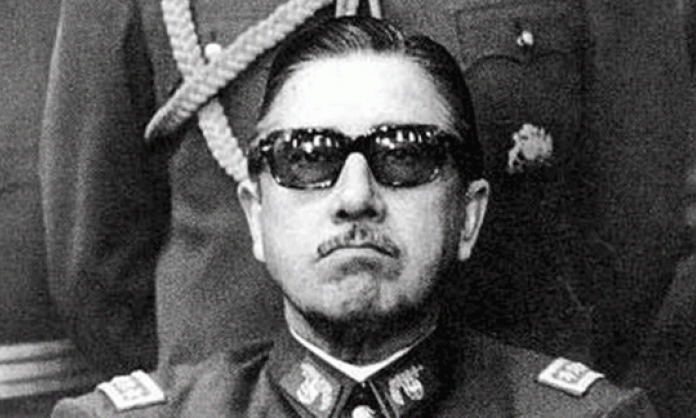“Everyone knew they had to do that to the people in order to break them because Communists would not talk. It was necessary. The same as the Nazis did, you understand?” Chilean war criminal Adriana Rivas has difficulty feigning innocence.
Rivas was hand-picked to join the much feared Lautaro Brigade. Its sole purpose was to eliminate opponents of Chilean dictator Augusto Pinochet.
“[W]hen Adriana Rivas participated in the torture of the detainees”, eye witness Jorgelino Vergara told ABC’s Foreign Correspondent, “she beat them with sticks, she kicked them, punched them and also applied an electric current to the political prisoners”.
Foreign Correspondent has discovered that Rivas works part time as a nanny and cleaner in Sydney’s eastern suburbs. She settled here after fleeing Chile in 2010 while on bail awaiting trial on charges of aggravated kidnapping. The families of Rivas’s victims want her returned to Chile to face trial. Chilean activists in Australia also have been campaigning for the Australian government to extradite Rivas. Red Flag caught up with campaigner Mario Beltran, who was a victim of Pinochet’s torturers.
He comes from a working class family. His father was a truck driver. Because he was the youngest, he had the most encouragement to go to university. “I started meeting some new people ... I had access to other kinds of literature, like the Communist Manifesto.”
“So I got involved with members of the student union of the University of Concepción. They were much better educated and more informed than what I was ... So that’s how I got involved ... they were sort of radicals; they were part of MIR.”
The Revolutionary Left Movement (MIR) was one of the most radical groups in Chile. “Back in 1974, a year after the coup [that overthrew the left wing Allende government], I was able to go to the university as a normal student because nobody knew that I was involved in some sort of activity.”
The same year, Miguel Enríquez, one of the founders of the MIR, was shot ten times, including a bullet to the head, after Pinochet’s secret police uncovered his safe house in the working class district of San Miguel in Santiago.
“After he was killed, because I was part of the organisation within the university, we were [forced] underground; we decided to do a proper pamphlet on the university.
“We ended up being caught by police and the result was 20 days disappeared, being tortured almost every day. We had no hope at all to come out alive ... I didn’t know anything about torture; I just knew suffering. Now I think I’m suffering the consequences of the things they did to me.”
One of Rivas’s responsibilities was executing people like Mario. After he was disappeared, a military court sentenced him to three years’ jail. They charged him with organising and training people for preparation to overthrow the government. “That was a big ask”, he laughs. “We thought about it”.
When he was released, he started work as a truck driver, like his father. He got married and worked for 15 years. But during the 1988 referendum to determine whether Pinochet should extend his rule a further eight years, the secret police were reactivated. They sought out anyone who might be involved in activity against Pinochet.
“I said to my ex-wife, I think we better go. I’ve got two kids and I don’t want to leave you with two kids.”
He went to the Australian embassy and showed his qualifications as a “bad boy”. The next week he got a visa and came to Australia.
Mario is determined to continue the fight to have war criminals like Rivas extradited. After Pinochet lost the referendum, many Chilean war criminals fled.
“We know there are about 400 agents living in Australia; some were with the Chilean secret police during the dictatorship. We know about nine names already. But the rest – where they are, what they are doing, how did they got here – we don’t know ... It’s going to take us a while to find out and do the same thing that we’re doing with Rivas – track them down.”
[Rallies calling for Rivas’s extradition: 24 May 12pm at the Victorian Parliament and the Sydney Town Hall. For more information visit: facebook.com/chile.solidarity.]










